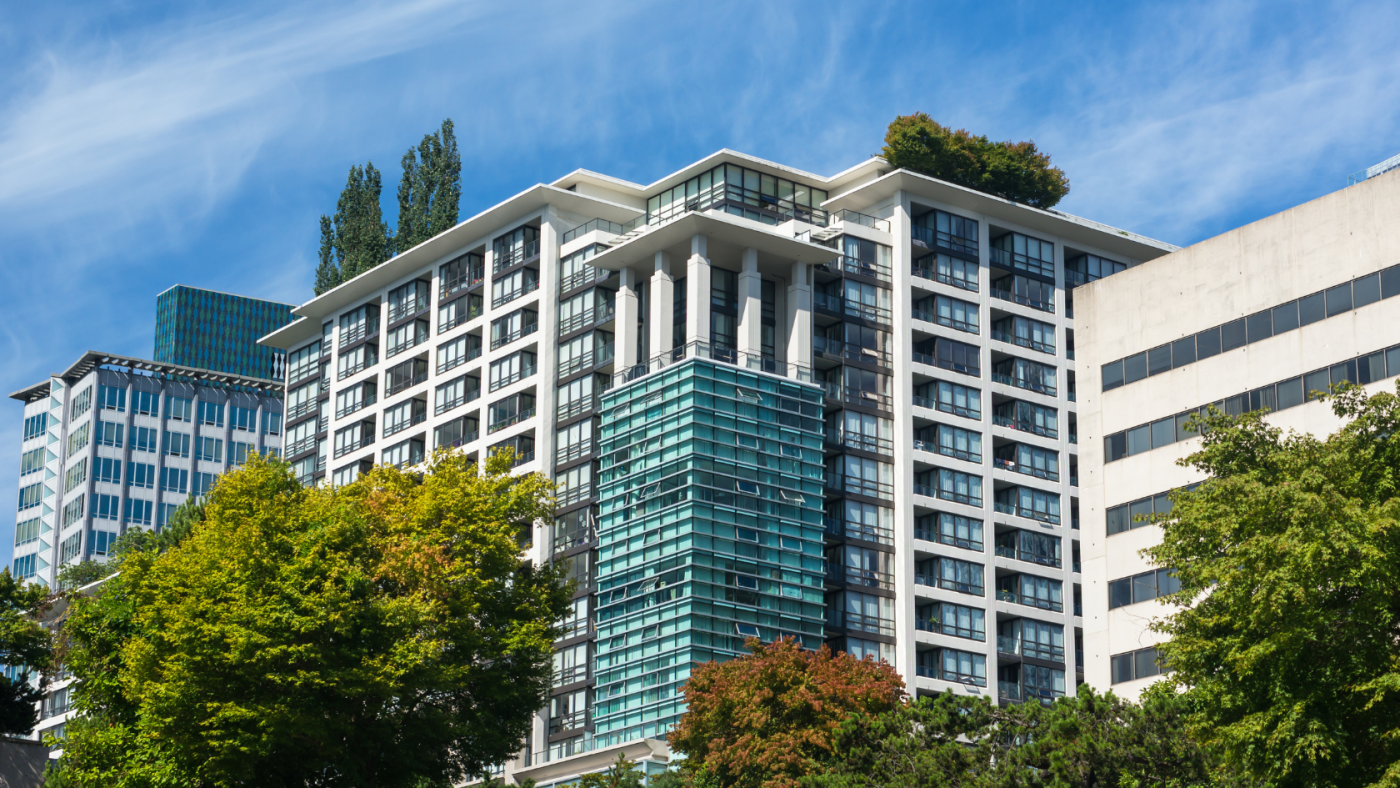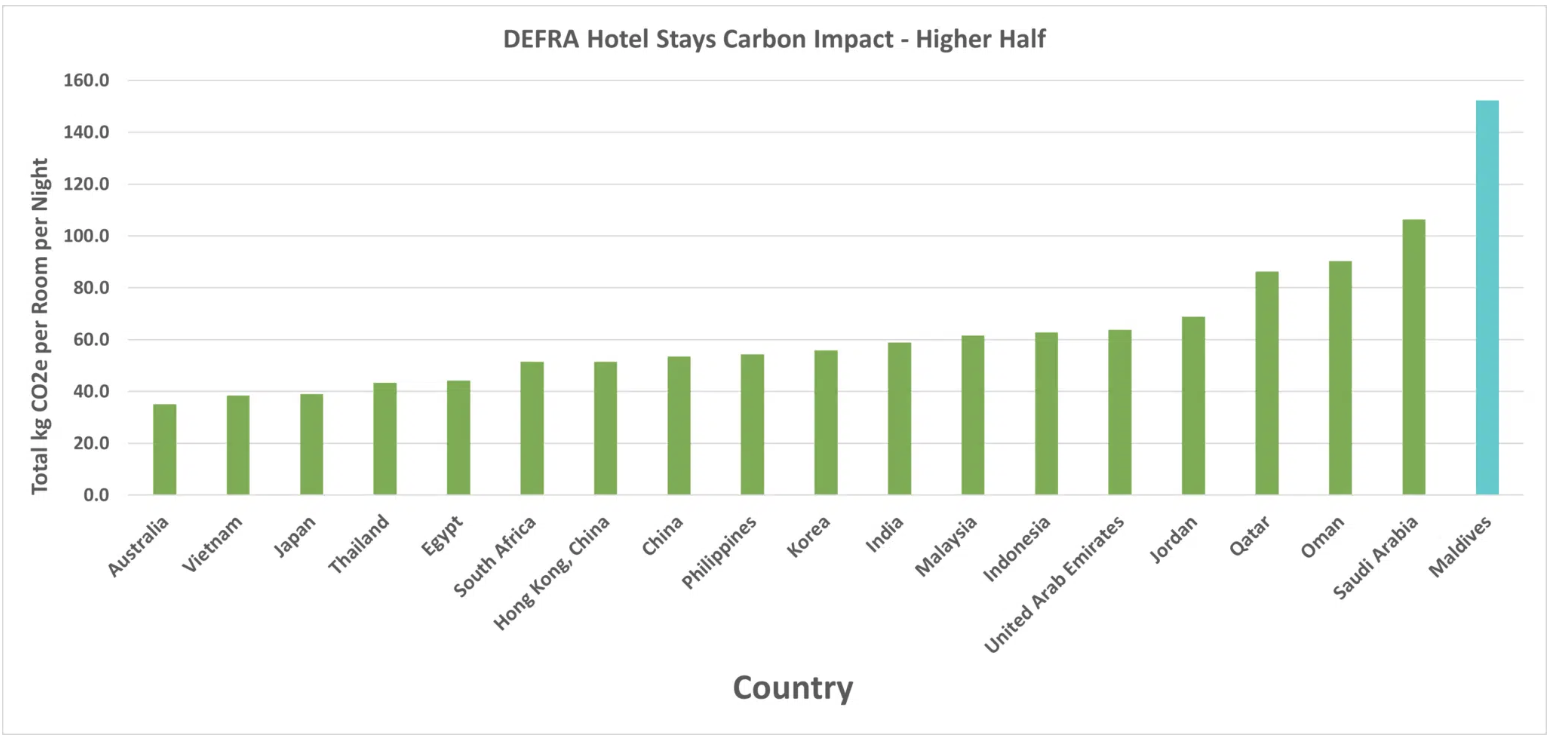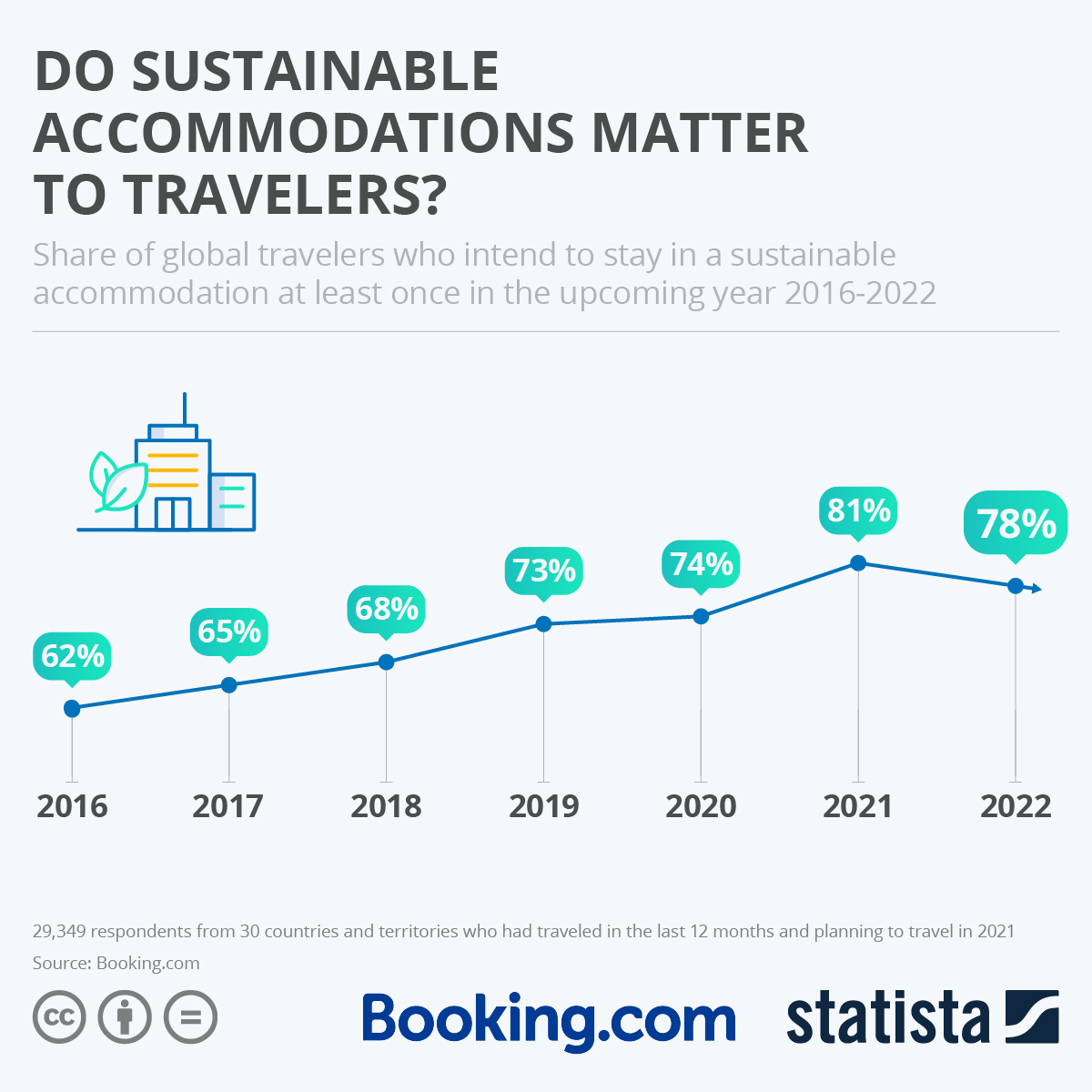In recent years, a significant shift has been observed in the travel industry, with a growing number of travellers choosing environmentally friendly options.
This trend is largely driven by a raising awareness of environmental issues and a collective desire to contribute towards sustainability. Hotels and resorts that prioritise energy efficiency are increasingly favoured by environmentally conscious guests.
In this article, we will uncover the impact of energy efficiency on guest satisfaction. We will also discover 2 case studies that will showcase how your building could achieve big energy efficiency improvements. Delving deeper, we’ll explore the top 3 energy consumers in hotels… And more!

Understanding the Shift Towards Energy Efficiency in Hospitality
The hospitality industry’s operations often come with a heavy environmental footprint, including substantial energy consumption, water usage, and waste generation. Hotels alone account for approximately 1% of global carbon dioxide emissions. Out of the 36.3 billion tons of carbon dioxide released worldwide in 2021, hotels contributed around 363 million tons – an amount roughly equivalent to the annual energy consumption of about 45.7 million homes.
Source: The Carbon Emissions of Staying in a Hotel. Circular Ecology.
As awareness of climate change and resource depletion grows, stakeholders within the hospitality sector are increasingly recognising the urgent need to adopt sustainable practices. According to a study published in the journal ‘Nature Climate Change’, the total contribution of the tourism sector to global CO2 emissions is now estimated at 8%.
Let’s dig into the influence these stakeholders have on the hospitality sector.
Travellers and their Preference for Sustainable Hotels
The preference of travellers of choosing sustainable Hotels and Resorts has been increasing over the years. Travellers are now more informed and selective, often seeking out accommodations that align with their values of preserving the planet. They understand that their choices, from the appliances used to the practices of saving energy in their temporary homes, can have a significant impact.
According to research conducted by Booking.com, a leading online travel agency, in 2023 76% of travellers indicated a higher likelihood of booking a hotel if it had a green certification. Furthermore, the study revealed that 43% of travellers are willing to invest more in accommodations that prioritise sustainability. This conscious decision-making process highlights a shift towards sustainability that’s reshaping the hospitality industry.
Source: Statista.
Hospitality Investors and Regulatory Bodies
Investors are increasingly factoring environmental, social, and governance (ESG) criteria into their decisions, driving businesses to prioritise sustainability initiatives.
The correlation between sustainability and risk management is evident. Businesses that prioritise sustainability are inherently better positioned to safeguard their long-term viability. As a result, they can enhance their access to capital and become more appealing targets for acquisition. This is primarily due to their diminished exposure to a range of risks and their augmented valuation.
Moreover, companies with robust sustainability initiatives are better poised to navigate regulatory hurdles and law compliance. The hospitality sector, along with other industries, faces a rising tide of environmental regulations and standards to achieve net-zero.
Embracing eco-friendly practices not only aligns hotels with these evolving requirements but also shields them from potential penalties.
Cost Savings derived from Sustainable Practices
Embracing energy efficiency and sustainable practices not only benefits the environment but also generates significant cost savings over time.
By integrating measures like energy-efficient lighting, water conservation systems, and waste reduction initiatives, hotels can reduce operational expenses while minimising their ecological footprint. Consequently, hotels that prioritise these practices gain a competitive edge in the industry, attracting environmentally conscious guests and enhancing their reputation for sustainability.
The Impact of Energy Efficiency on Guest Satisfaction
Energy efficiency isn’t just a buzzword in the hospitality industry; it’s a critical factor that significantly influences guest satisfaction. When hotels prioritise sustainability and invest in energy-saving measures, they not only contribute to decarbonisation but also enhance the guest experience.
Implementing energy management systems in hospitality settings ensures that guests enjoy a comfortable, personalised stay without unnecessary energy consumption. For instance, smart HVAC systems and lighting controls adjust according to occupancy and preferences, ensuring rooms are always at the ideal temperature and lighting levels. This attention to detail not only reduces energy consumption in hospitality but also leaves a lasting impression on guests, making them more likely to return or recommend the hotel to others.
In essence, by focusing on energy efficiency, hotels can achieve a win-win scenario—advancing sustainability while simultaneously boosting guest satisfaction.
Top 3 Energy Consumers in Hotels and Strategies to Manage Them
Understanding the top energy consumers in hotels is crucial for implementing effective energy management in hospitality. Let’s have a look at the top 3 energy consumers in this sector:
- Heating, ventilation, and air conditioning (HVAC) systems are among the largest energy consumers, often accounting for a significant portion of a hotel’s energy consumption. In a study on energy consumers in hotels, conducted with a sample of 184 selected hotels, it was found that HVAC systems accounted for half of the total energy consumption. By optimising HVAC systems with smart technology, hotels can significantly reduce energy use while maintaining guest comfort.
- Lighting is another major energy consumer. The hospitality sector consumes significant amounts of energy annually, totalling around 20,910 gigawatt-hours (GWh) – sufficient to power approximately 1.2 million homes. However, reports from the UK Government indicate that potential savings of 4,300 GWh per year could be realised across the hospitality industry by implementing energy efficiency measures and enhancing business practices.
- Water heating also contributes to high energy usage. Implementing energy-efficient water heating systems and encouraging water conservation practices among guests can further support sustainability efforts.
By focusing on these key areas, hotels can advance toward decarbonisation and sustainability, enhancing both energy efficiency and guest satisfaction. These measures not only contribute to saving energy in the hospitality industry, but also align with the growing demand from travellers for green accommodations.
Case Studies: Hotels and Restaurants Leading the Way in Energy Savings
In the quest for sustainability and energy efficiency, certain hotels have set remarkable benchmarks, illustrating that comfort and environmental protection can indeed go hand in hand.
Now, let’s consider the example of a hotel and a restaurant that achieved remarkable energy efficiency and savings through the implementation of an Energy Management System (EMS):
The Radisson Blu Hotel, United Kingdom
A prime example is The Radisson Blu Hotel. The prestigious facility was meticulously crafted and delivered to the hotel operator, the Azure Group, achieving the esteemed BREEAM Excellent Building certification. Nonetheless, despite its status as one of the greenest hotels in the UK, the operational costs, particularly utility expenses, did not align with expectations.
The implementation of the Spacewell Energy Platform allowed for precise monitoring of asset, equipment, and system performance, swiftly detecting any deviations. As a result of this implementation, the hotel achieved remarkable reductions: a 41% decrease in gas consumption, a 17% reduction in electricity usage, and an overall reduction of 30% in kilowatt-hour consumption.
Burger King Ávila, Spain
In the case of the Burger King Ávila franchise, which offers discounted products and experiences high employee turnover, effective management tools are crucial. Despite the Ávila franchise’s meticulous data collection on sales, its monthly electricity bills were not being efficiently monitored or managed.
The goal of the Burger King Ávila energy savings project was to optimise energy conservation with minimal investment. With the implementation of our platform, this franchise achieved a reduction of its electricity costs by 17%. Exceeding the franchise owner’s expectations.
3 Simple Steps to Kickstart Your Hotel’s Energy Savings
Embarking on the journey towards energy efficiency savings in hospitality doesn’t have to be daunting. With a few simple steps, your hotel can significantly reduce energy consumption and pave the way for a more sustainable future:
- First and foremost, consider conducting an energy audit. This will help you identify where energy is being wasted and highlight opportunities for improvement. From there, investing in energy-efficient appliances and lighting can make a big difference. LED lights, for example, not only consume less energy but also have a longer lifespan, reducing both energy costs and maintenance.
- Another impactful step is to embrace smart technology. An EMS, for instance, can automatically adjust heating, ventilation, air conditioning (HVAC), and lighting based on occupancy can drastically cut down energy use without compromising guest comfort. Implementing an energy management system in hospitality can also provide real-time data and insights, allowing for more informed decisions about energy use.
- Don’t underestimate the power of engaging your guests and employees in your sustainability efforts. For instance, simple initiatives like encouraging guests to reuse towels and linens can contribute to significant energy savings in hospitality by reducing the frequency of laundry loads.
By taking these steps, not only do you work towards decarbonisation and sustainability, but you also position your hotel as a leader in the competitive hospitality industry, appealing to the growing number of travellers seeking eco-friendly accommodations.
The Future of Hospitality: Sustainable, Efficient, and Guest-Focused
As we look towards the future of hospitality, it’s clear that sustainability, efficiency, and a guest-focused approach are not just trends but essentials that will define the industry. At Spacewell, we understand that the path to a sustainable future in hospitality is paved with energy efficiency.
Innovative energy management in hospitality plays a crucial role in this transformation. By adopting smart technologies such as EMS that monitor and reduce energy consumption, hotels can offer a more personalised, comfortable stay for guests while significantly lowering their environmental impact.
How Spacewell’s Technology achieves Energy Efficiency in Buildings
In the journey towards sustainability, Spacewell stands out as a beacon, guiding the hospitality industry with innovative technology that significantly boosts energy efficiency. Our solutions, rooted in AI and BIM, are designed to monitor and manage assets and facilities with remarkable precision.
Our Platform harmonises the various elements of the hotel’s energy consumption to create a seamless integration of efficiency, sustainability, and comfort. Here’s a breakdown of what it can do:
- Smart Energy Management: monitors and controls the energy usage across the hotel, from lighting to HVAC systems, ensuring that energy is used efficiently without compromising guest comfort. It’s like having an energy guardian that adjusts settings in real-time based on occupancy and environmental conditions.
- Predictive Analytics: The platform looks to the future. By analysing historical data, it can predict peak energy demands and adjust systems preemptively, ensuring the hotel operates smoothly and cost-effectively.
- Sustainability Boost: For hotels aiming to green their operations. It helps reduce the carbon footprint by optimising energy use and integrating renewable energy sources where possible.
- Cost Reduction: By trimming down unnecessary energy use, the platform directly contributes to lowering operational costs.
- Enhanced Guest Experience: Comfort is king in the hospitality industry, and the Energy Platform ensures that it’s never sacrificed.
- Maintenance Alerts: It’s also on the lookout for any irregularities in the energy systems, providing alerts for maintenance issues before they become bigger problems.
- Reporting and Insights: With comprehensive reporting tools, the platform offers insights into energy usage patterns, efficiency improvements, and cost savings, enabling informed decision-making.
In essence, the Spacewell Energy Platform transforms a hotel into a smarter, more sustainable, and more efficient operation, enhancing both the guest experience and energy efficiency. It’s not just about saving energy; it’s about elevating the entire hotel experience. Remember that you can always get in touch with us, we’ll be pleased to help!





